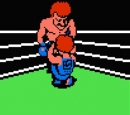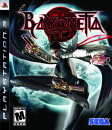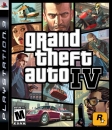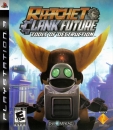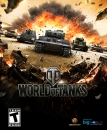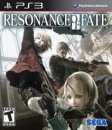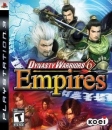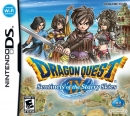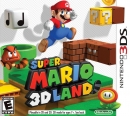http://www.eurogamer.net/articles/mass-effect-2-review
For games that are so obsessed with their own fake histories that their creators often commission novels to promote them, RPGs are curiously happy to ignore their real-life predecessors. Fable II takes place in the same world as Fable, but only notionally. Fallout 3 was inspired by its ancestors, but made its own radical way. And virtually everything Square has made since 1997 has Final Fantasy stamped on it, but the majority of the games wouldn't recognise one another at a family picnic.
Mass Effect 2 is meant to be different. For a start it is neither beginning nor end - it's the second instalment in a trilogy of releases cataloguing the antics of humans and their alien friends in space, in a future dogged by myth, politics and a suspiciously readymade transport network. But more importantly it is designed to allow for choices that may have already been made by the player in the first game, and to bequeath several years' worth of possible decisions to a future sequel.
The game begins shortly after its predecessor. Commander Shepard and friends have vanquished Saren and his master, and are rumbling around the galaxy trying to wipe out any remaining Geth robots. All of a sudden a massive, unknown alien ship assaults them. The attack plunges you, as Shepard, into a fiery playable prologue in the heart of a disintegrating spaceship, introducing or reintroducing basic movement and conversation skills in violent and eye-catching circumstances.
Navigating galaxies now involves buying fuel and driving a tiny little ship around on an overworld (overuniverse?) map screen. It's rather charming.
Within seconds there are moments of beauty and class to match the high tension. Emerging from the fury of flames and collapsing walls of your ship into the eerie peace and quiet of a pocket of vacuum, exposed to the stars through the wrenched struts of the superstructure and watching loosed seats drift away as you brush past them, is a deft and startling juxtaposition. BioWare has criticised Japanese RPGs in recent months for being stuck in their ways, but it's nice to see that the developer has now mastered one of their strengths: the explosive opening.
Events then shift to two years later as Shepard is compelled to join with Cerberus, an organisation run by President Bartlett off of the West Wing (who is still smoking). Shepard is to seek out vanishing human colonists, but with his old colleagues now scattered around the galaxy, many with new priorities, first he must assemble a team. This is familiar BioWare territory, of course, expanding out from a linear first hour to send you across the universe in a new ship recruiting new personnel, and as is always the case, almost nobody you seek is as they seem, and circumstances rarely match those described to you by Bartlett - sorry, the Illusive Man. Instead, they become more elaborate and intriguing.
For instance, early on you visit a ship called Purgatory to locate a rogue biotic (a wizard of the future, newcomers), and while it begins as a simple prisoner exchange, you get more than you expected by the end, and perhaps more than you can handle. Later on you visit the space station Omega and mislead local mercenaries in order to track down the alien they are gunning for, only to encounter somebody you did not expect along the way. Even later, you recruit a powerful biotic who is on the hunt for a dangerous relative, and must employ a bit of detective work to bring them together, before ultimately being called upon to make a startling choice at the peak of their reunion.
Many planets you visit are stocked with shops, whose wares include hacks and upgrades for your armour and abilities, with negotiable rates.
While your crew will come to be stocked by mostly new faces, the game isn't coy about thrusting old friends and enemies back to the fore and showing you how the past two years have affected them, nor about allowing some of them to disappoint you. If you played the first game, your decisions will be evident, and those who explored the troubled but adorable fringe worlds of the first Mass Effect thoroughly will spot more than a few familiar names and faces in different roles, almost any of which would be a shame to spoil.
Players both old and new will devour the same content with comparable relish, however. For newcomers Mass Effect 2 gently constructs elements of your back-story in one of its initial scenes in order to compensate for the lack of a save-game to import, although the game makes certain decisions for you in a manner that fits the story most naturally, allowing for outcomes that might be deemed more valuable, like potential romantic entanglements. And while old characters inevitably need less introduction than new ones, they are handled in a way that should retain a new player's interest rather than excluding them.
The manner in which the resulting story is told is also an improvement. The first game's system of having you select a few short words, which Shepard then paraphrases and vocalises at greater length in a manner that suits your chosen tone and alignment, remains, but characters now embellish these exchanges by moving around during conversation, and there are infrequent prompts to interrupt proceedings with a positive or negative action - by comforting a grieving mother as she begins to break down, for instance, or more likely by shoving a garrulous mercenary out of a tempting window.
Even when the game removes direct interaction from proceedings, it's only to facilitate fantastic action set-pieces, and these continue to branch and play out depending on the things you have set in motion. The way your inclinations influence proceedings has also changed in conversation, with the bonus conversation options - the simplistic but effective opposing duo of persuasion or intimidation - now available depending on your overall alignment rather than where you manually stick your skill points, allowing you to focus those fruits of the combat experience on upgrading combat abilities instead.
These too are simplified and consolidated. When the original Mass Effect was first released, cover-based shooting was becoming all the rage and the game suffered criticism for its restrictive, slightly clumsy interpretation, but Mass Effect 2 is unlikely to face the same complaints, with smoother handling and the majority of locations designed to suit its few remaining limitations rather than emphasise them.
There is also a better heads-up display to help decipher an enemy's vital statistics - its health, but also shields and barriers - and colour coding assists in establishing which abilities to deploy in response. Attacking and healing options have also been brought together in a tighter control scheme and interface, so you are rarely in any doubt where to reach for something or what a button does, even though you retain the ability to create combat shortcuts and order your choice of two wingmen around.
Many shops also stock souvenirs, my favourites being the space hamster you can buy for the captain's quarters. Also, remember to feed the fish.
This increased user-friendliness is evident throughout the game, with unintrusive pop-ups to inform you where to look for clarification among the better-organised menus, and elements like the confusing inventory system stripped away so that swapping to a new gun no longer involves digging out the manual. Thanks to technology apparently pilfered from the first game's Geth enemies, we also now have, er, guns that you reload manually, rather than guns that you fire for a few seconds then stand around waiting to cool down. It's symptomatic of the way the fiction has been lovingly refined to accommodate superior mechanics.
While the list of possible abilities and specialisations may look short when you first encounter it, the range of options also increases as you hit certain milestones, and unlike the first game, which linked certain elements of character progression to a specific "rogue VI" mission that not everyone bothered to do, the sequel makes these developments and the processes by which you unlock them more inviting.
Despite some theoretically brutal refinements (no weapon drops!), the game can't be accused of dumbing down, either, as things that seem to be gone are often still there to discover in a more logical way, and the simplification frees you to experiment in a manner that the first game struggled to encourage. Certain biotic and tech powers are analogous to one another (incinerate and throw might as well both be called "homing fireball", for example), but other class-specific powers are more exotic, and allow for tactics that suit the challenges of the game's harder difficulty settings.
Despite all the arguments last time about elevators, your new ship is split across four floors, still accessed by elevator. Fortunately the load times are much better.
The changes, and the rewards BioWare provides for players resuming from a Mass Effect save-file, are such that veterans of the first game are unlikely to find themselves overmatched for the rank-and-file enemies of the first few hours - but it is unlikely they would be bored even if they were. Your character inherits his moral decisions but can be re-specced completely, and the universe is a richer, more personal place for those who sought out the first game's side missions and spoke to its broad cast.
Rather like last year's Assassin's Creed II, Mass Effect 2 remembers that looting the places you visit is rather enjoyable as well, and this is infused at a fundamental level. In order to buy upgrade schematics and other items you collect credits, and these are located in wall safes, locked caches and numerous other places, often hidden behind hacking and circuit-breaking mini-games (the former addictive and tense, the latter slightly prosaic), while separate data pads fill in story blanks and open new side-mission possibilities.
Every mission's combat sequences are inevitably broken up by quieter moments when you rummage through the surrounding area for loot - credits, schematics, medi-gel and trinkets - and your new ship has caught the looting bug too. You may be on a very important mission to discover why human colonists have been disappearing, but you can also stop off at other unexplored planets to loot them for minerals, by way of a compelling mini-game where you probe the surface and watch for surges on a neighbouring oscilloscope.
Planet and space station design, whether as part of story missions or on side quests, is equally assured. While the Citadel - a futuristic meeting place and seat of the galaxy-policing Council - returns, you no longer visit its embassy lounges and wards but instead wander around its equivalent of the tax-free mall you usually find after security at the airport. (You are also armed with a map that actually helps you to navigate it.) New locations, meanwhile, are more exotic, and often double up as brilliant fan service.
Most locations are now home to multiple story missions too, and feel more like real places as a result. The grimy, corrupt and partially plague-ridden Omega station, for example, and the seductive Asari commerce planet of Ilium. Your activities are also more diverse, like using maintenance gantries to tail a politician, and it's not unusual for a mission to transport you to a separate area away from the throng of general planetary activity when it gets to the business end of proceedings.
If you can visit the surface of a planet, you won't be driving around for hours only to discover you don't have the tech skill to open a particular crate, either (in fact you won't be driving at all, as BioWare has ditched the Mako buggy). You can only land on hub planets or those that have a specific side-quest available, but the fact the latter "anomalies" lurk within dense systems of other planets that are ripe for mining enhances the feeling of exploration, while the rewards are more worthwhile financially and experientially.
Shepard still looks like he's having a stroke when you start flirting with somebody on the crew, but the romantic options are more interesting overall.
When you touch down, you may have to map a path through dense fog using laser beacons, or investigate the crash site of a space hulk teetering over a precipice, or rifle through records of a Cerberus operative's interrogation as his sad, mangled corpse lies nearby, and no two side missions are really alike in pace or tone. These extra planets are rarely as gripping as the main story, but they do an excellent job filling out the universe, and ensure that you really never do know what to expect when you circle for landing.
That main story is the star turn though, and one of the reasons is that it remains simplistic while a complex belt of orbiting social and political circumstances enhance its sense of gravity, inviting you to behave as your conscience guides but forcing you into situations that lack clear moral imperatives. Overall the events and places of Mass Effect 2 embellish the sensation, bred throughout the original, that space is every bit as mythological and diverse as the old worlds of high fantasy to which RPGs are so frequently and unimaginatively confined, but that in space it's rather more difficult to predict what you will encounter.
With the fate not only of the galaxy and your crew but the nature of your experience in Mass Effect 3 hanging in the balance, it's also easier than ever to suspend your disbelief and empathise with the characters you gather to your team, and when important decisions have to be made you feel the actual pressure of your own accumulated choices and future. Better than perhaps any RPG in recent memory, Mass Effect 2 even justifies the size of its ensemble by the time of its excellent conclusion, and it does more to develop your interest in fellow team members in the process, whether or not you end up liking them.
You may miss the Mako, but by the end of the game you may have forgotten all about it. Until the Hammerhead DLC, anyway.
Even in a genre where depth and scale are frequently overwhelming, Mass Effect 2 was built upon staggering ambition - although to describe developer BioWare as ambitious is nothing new - but what is surprising is how well it handles the transition from original to sequel despite the need to support a variety of levels of experience and expertise, and how well it satisfies its players today while inviting anticipation for what must follow. Play it more than once, especially with different save-files to begin from, and it's hard not to admire the flexibility, and the way key decisions, friendships and experiences change the dramatic resonance of the story subtly but importantly. All this despite the greater heft and complexity of the universe and the game's broader branches and longer runtime.
Mass Effect 2 is more than an academic exercise, however, because whether or not you come to it afresh, and whether or not you ever see it through more than once, your experience won't just have been an acceptable storytelling throughline in a ludicrous simultaneous equation, it will have been fantastic adventure full of memorable characters, places and events that justify its grand scale and sober disposition.
In a generation of great RPGs, those accomplishments are magnificent individually but superlative in concert. Even so, perhaps BioWare's greatest success in Mass Effect 2 has been taking a complex RPG and making it effortless to understand, play and enjoy on a constant basis, because it has done this in a manner that should prove utterly essential to veterans and newcomers alike, and more than enough to suggest Mass Effect 3 will be the most important game in BioWare's history.
10/10


















